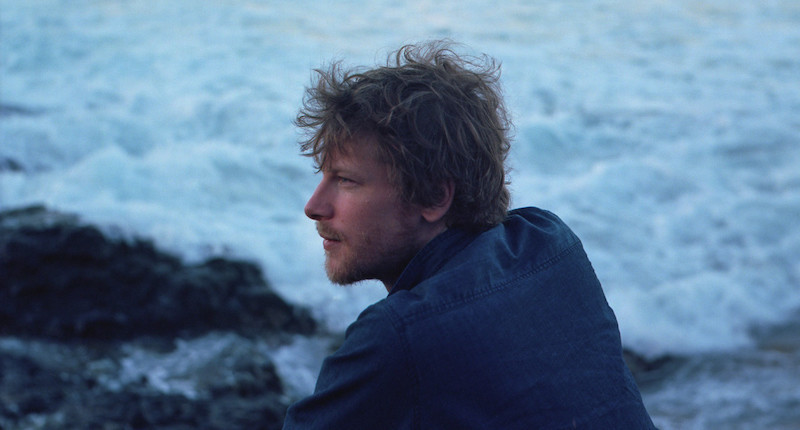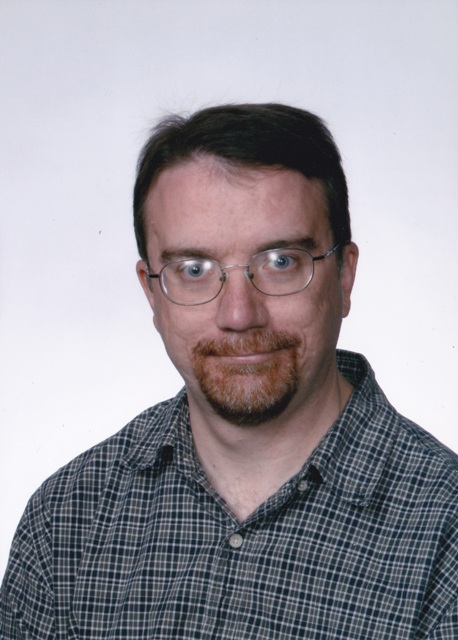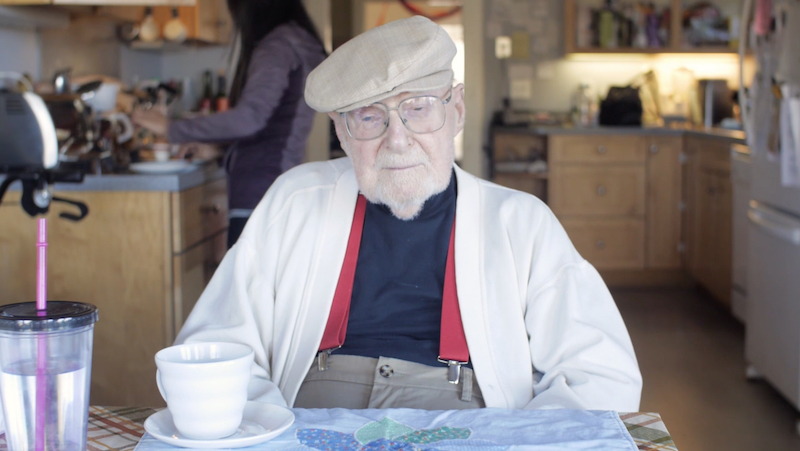Last month, I wrote about a short film called “Pocket,” which took place entirely on a smartphone owned by a less than sympathetic teenager named Jake, who, like many of us, suffers from screen addiction. Watching Andrew Hasse’s “Being 97,” a documentary about a 97-year old man who used to teach philosophy, I thought about what young Jake would be like at the age of 97. Would he still need his smartphone to survive the day-to-day grind? What will become of 97-year-olds 50 or 60 years from now? Will there still be the compulsion to check Facebook statuses and Twitter feeds? Will there be a special kind of social media for people, say, seventy and older?
<span class="s1" <these="" are="" not="" questions="" brought="" up="" in="" this="" gentle,="" moving="" documentary,="" but="" that’s="" what="" came="" to="" mind.="" we="" living="" longer="" than="" did="" fifty="" years="" ago,="" filling="" our="" time="" wisely?="" probably="" as="" well="" should.="" These are not questions brought up in this gentle, moving documentary, but that’s what came to mind. We are living longer than we did 50 years ago, but are we filling our time up wisely? Probably not as well as we should. Dr. Herbert Fingarette, the subject of the piece (and Hasse’s maternal grandfather), spent much of his life in philosophy studies and wrote many books, including one simply titled “Death” at the age of 77. 20 years later, his view on life has changed. Where once he challenged the idea of fearing death, stating that there’s nothing to fear because nothing will happen, now he fears it.
How did he come to that moment? He states at the film’s beginning that it’s hard to imagine the state of mind of someone his age. One has to accept that your motor skills do not function the way they used to, so outside assistance becomes necessary. Of course, someone who comes in and helps out is no substitute for a loved one who has been dead for several years. Herbert has been living without his wife for a long time now. “Her absence is a presence,” he says. Perhaps the loneliness he now feels will give way to (as he sees it) the emptiness of death, a moment of transition no one would wish for themselves. How often do we hear about someone dying peacefully, surrounded by loved ones? At Herbert’s age, he doesn’t have that possibility.
It’s hard to imagine anyone not being moved by Hasse’s film. He captures the stillness of life at 97 and the slow passing of time, while also giving the viewer a well-rounded view of Herbert and his time on earth. Herbert connects to the past through music and keeps up with his reading. He still enjoys bacon, eggs and bagels for breakfast. He speaks fluently on his changing world views. By the end, we wonder what his final moment will be like. Will the fear give way to peacefulness and acceptance? I hope so, but then we probably all hope that for ourselves as well. The best immeasurable accomplishment “Being 97” could have is that it will make the viewer unplug for a little while and think about those things.

How did this film come about?
Herb was my maternal grandfather. I’ve been close with him throughout my entire life, but our relationship deepened after my grandmother, Leslie, passed away in 2011. As you can see in the film, he was truly heartbroken after she died, and needed a lot of emotional support from me and the rest of the family, especially in the first few years of adjusting to life on his own.
My grandfather was a prolific writer—I have a big box full of reprints of articles, lectures, and of course all of his books. But after Leslie died, he couldn’t write anything, except for notes that he never developed into anything finished. This is because my grandmother was basically his editor—he would write, show it to her, and she would help him simplify and clarify the language (she was editor of her high school paper and on a champion on the debate team, a sharp intellect as well).
So the film emerged as a way to help my grandfather voice his thoughts since he wasn’t able to write them down. We would have long conversations about many things, including death, a topic which he was adamant about treating openly and honestly. I wanted to record some of these conversations for myself, and he had ideas that he wanted to share with the world about being old and facing death, so we decided to do it. The film also presented an opportunity for us to collaborate together, which we both thoroughly enjoyed.
How much time did you spend with Herbert during filming?
The filming took place over about a month, probably 14 days of filming little segments—we only did a few hours at a time. But I also spent a lot of time with him where we weren’t filming. I made sure to see him every day or at least every other day for the last six months of his life.
Did he get to see the final film? If so, what were his thoughts?
He did see it, and he was very moved by it. He said it was a “great film” (although I’m sure there’s a bit of grandfather-ly bias in there.) I was worried he might think it was too dark, but he said it depicted his situation accurately. I asked him if he thought anything should be changed, and he said it was just right the way it was. He marveled at how all the little snippets that we’d filmed over the course of the month came together to tell a story and paint a picture. He said he learned something about filmmaking through that process, which was meaningful to both of us, since he’d seen and supported my development as a filmmaker since I began at age 11.
What went through your mind when you learned of his passing?
I was with him when he died. I was happy to be with him in his last moments, which were relatively peaceful, but it was a very intense, cathartic experience for both of us.
Has any part of your worldview changed at all because of this film?
I think the piece that’s not in the film, but that’s very present for me, relates to his spiritual outlook. Although he was interested in dreams, mythology, religion and the spirit, he was fundamentally an existentialist, a material rationalist, who had the firm belief (as is made clear in the film and in his book on death) that after you die, there’s nothing. Whether this is true or not, I don’t think that it’s necessarily the best strategy for meaning-making when you get to that age. He was limited in many ways because of his age, and his world shrank down from what it was when he was in his prime (he said he didn’t start feeling his age until his mid 80s.) I think that without my grandmother and without his philosophical work, he wasn’t left with much meaning in his life. Of course he had me and my mother and my brother and the constant companionship of his caregiver and close friend, Sheryl Pontis, who appears in the film. But obviously that wasn’t enough to give his life a sense of purpose. So as I move forward in my own life and look towards eventual death, I do so with an open mind, uncertain of what comes after life, as I don’t think there’s any real way to know what does or doesn’t happen until you get there and experience it first hand.
What’s next for you?
I’m continuing on the theme of family, working on a short doc about my father, who died 15 years ago. The logline is: an archaeological excavation of family secrets, in search of lost feelings for my father. I’m also working on a feature length documentary about adaptations to climate change.












